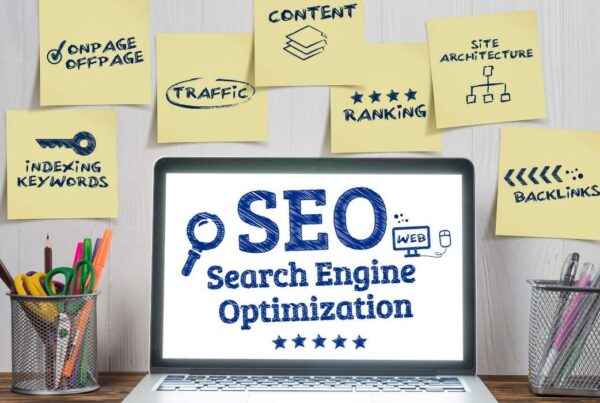Search Engine Optimization (SEO) is a vital component of any digital marketing strategy.
Still, one question that continually plagues marketers and business owners alike is: How long does it take to see results from SEO efforts?
The answer to this question is multifaceted, as SEO timelines can vary significantly depending on several factors.
Understanding the SEO Process:
Before delving into the timeline, it’s essential to understand the SEO process itself.
SEO involves optimizing a website’s content, structure, and authority in a manner that aligns with search engine algorithms, primarily Google’s.
The goal is to improve the website’s visibility in search engine results pages (SERPs) for relevant keywords and phrases.
Factors Affecting SEO Timelines:
- Website Authority: Websites with established authority tend to see results faster than newer sites.
Building authority takes time and typically involves earning backlinks from reputable sources, creating high-quality content, and maintaining a solid online presence.
- Competitive Landscape: The level of competition in your industry and for specific keywords can significantly impact SEO timelines.
Highly competitive niches may require more time and resources to achieve meaningful results.
- Content Quality and Relevance: Content is at the heart of SEO. High-quality, relevant content that satisfies user intent is more likely to rank well in search results.
Creating and optimizing content takes time, but it’s a crucial aspect of long-term SEO success.
- Technical SEO Factors: Technical aspects of SEO, such as website speed, mobile-friendliness, and proper site structure, play a crucial role in search engine rankings.
Addressing technical issues and optimizing for performance can positively impact SEO but may require ongoing maintenance.
- Keyword Strategy: Targeting the right keywords is essential for driving relevant traffic to your website.
Depending on the competitiveness and search volume of your chosen keywords, it may take time to see significant movement in rankings.
- Consistency and Persistence: SEO is not a one-time effort but rather an ongoing process.
Consistently publishing high-quality content, optimizing for search, and building authority over time is crucial to achieving sustainable results.

- Typical SEO Timelines:
While there is no one-size-fits-all answer to how long SEO takes, it’s helpful to understand some general timelines:
- Short-Term Results (0-3 months): In the initial months of implementing SEO strategies, you may see some early wins, such as improvements in website traffic, keyword rankings, and visibility.
However, these results are often modest and may fluctuate.
- Medium-Term Results (3-6 months): By the three to six-month mark, you should start to see more significant improvements in your SEO performance.
This may include higher rankings for targeted keywords, increased organic traffic, and improved engagement metrics.
- Long-Term Results (6+ months): Achieving and maintaining top rankings for competitive keywords typically takes time, often six months or longer.
However, with consistent effort and a focus on providing value to users, you can continue to see growth and improvements in your SEO performance over time.
Additional Considerations for SEO Success:
- Algorithm Updates: Search engine algorithms are constantly evolving to deliver the most relevant and valuable results to users.
Keeping up with algorithm updates and adjusting your SEO strategies accordingly is crucial for maintaining and improving your rankings over time.
While algorithm changes can sometimes lead to fluctuations in rankings, staying informed and agile can help you navigate these challenges effectively.
- Local SEO: For businesses targeting a local audience, optimizing for local search is essential.
This involves optimizing your website and online presence to appear in local search results, such as Google My Business listings and local directories.
Local SEO efforts can yield faster results, particularly for businesses with a physical location or service area.
- User Experience (UX): Search engines prioritize websites that offer a positive user experience.
Factors such as page load speed, mobile responsiveness, intuitive navigation, and engaging content all contribute to a better user experience.
Investing in UX optimization can not only improve your search rankings but also lead to higher conversion rates and customer satisfaction.
- Analytics and Monitoring: Monitoring and analyzing your SEO performance is critical for identifying areas of improvement and measuring the effectiveness of your strategies.
Utilize tools like Google Analytics and Google Search Console to track key metrics such as organic traffic, keyword rankings, and user engagement.
Regularly reviewing this data can help you make informed decisions and optimize your SEO efforts for maximum impact.
- Link Building: Building a diverse and authoritative backlink profile is an integral part of SEO.
However, acquiring high-quality backlinks from reputable sources takes time and effort.
Focus on creating valuable, shareable content that naturally attracts links from other websites.
Additionally, engaging in outreach and relationship-building within your industry can help you earn relevant backlinks over time.
- Social Media Integration: While social media signals themselves may not directly impact search rankings, maintaining an active presence on social platforms can indirectly benefit your SEO efforts.
Sharing content, engaging with your audience, and building brand awareness through social media can drive traffic to your website and increase your online visibility, ultimately contributing to improved search performance.
Conclusion
While SEO timelines can vary depending on various factors, one thing remains constant: patience and persistence are essential. Building a solid foundation, consistently producing high-quality content, and adapting to changes in search algorithms are critical to long-term SEO success.
By understanding the complexities of the SEO process and setting realistic expectations, businesses can position themselves for sustainable growth and visibility in the digital landscape.

For personalized guidance on optimizing your SEO strategy and achieving your digital marketing goals, contact the experts at Topline Media Group.
With our expertise and tailored solutions, you can unlock the full potential of your online presence and drive meaningful results for your business.
FAQs
What is SEO, and why is it important?
Search Engine Optimization (SEO) is the process of optimizing a website to improve its visibility in search engine results pages (SERPs). It is essential because it helps drive organic (unpaid) traffic to your website, increasing brand awareness, leads, and, ultimately, conversions.
What factors influence the timeline for seeing results from SEO efforts?
Several factors can affect how long it takes to see results from SEO:
- Website Authority
- Competitive Landscape
- Content Quality and Relevance
- Technical SEO Factors
- Keyword Strategy
- Consistency and Persistence
What are some typical SEO timelines for seeing results?
While results can vary, here are some general timelines:
- Short-Term Results (0-3 months)
- Medium-Term Results (3-6 months)
- Long-Term Results (6+ months)
How can businesses ensure SEO success in the long term?
To achieve long-term success with SEO, consider the following:
- Stay updated on algorithm changes
- Optimize for local SEO if targeting a local audience
- Enhance user experience (UX)
- Monitor analytics and make data-driven decisions
- Focus on link building for a diverse backlink profile
- Integrate social media into your strategy for increased online visibility.
How important is user experience (UX) for SEO?
User experience is crucial for SEO success, as search engines prioritize websites that offer a positive user experience. Factors such as page load speed, mobile responsiveness, intuitive navigation, and engaging content all contribute to better rankings.
What role does link building play in SEO?
Link building is essential for SEO as it helps establish website authority and credibility. Focus on building a diverse and authoritative backlink profile by creating valuable content and engaging in outreach and relationship-building within your industry.
Can social media impact SEO performance?
While social media signals themselves may not directly impact search rankings, maintaining an active presence on social platforms can indirectly benefit SEO efforts by driving traffic to your website and increasing online visibility.
How often should SEO strategies be reviewed and adjusted?
SEO strategies should be regularly reviewed and adjusted based on performance metrics and algorithm updates. It’s essential to stay agile and adapt to changes in the digital landscape to maintain and improve search rankings over time.
How can businesses measure the effectiveness of their SEO efforts?
Businesses can measure the effectiveness of their SEO efforts by tracking key metrics such as organic traffic, keyword rankings, conversion rates, and engagement metrics like bounce rate and time on page. Utilizing tools like Google Analytics and Google Search Console can provide valuable insights into SEO performance.
What are the risks of expecting immediate results from SEO?
Expecting immediate results from SEO can lead to frustration and disappointment. It’s essential to understand that SEO is a long-term strategy that requires patience, consistency, and ongoing effort. Rushing the process or resorting to black hat techniques can result in penalties from search engines, damaging your website’s reputation and rankings.
How can businesses ensure they are targeting the right keywords?
To ensure you’re targeting the right keywords:
- Conduct thorough keyword research to identify terms relevant to your business, products, or services.
- When selecting keywords to target, consider factors such as search volume, competition, and user intent.
- Regularly monitor and adjust your keyword strategy based on performance data and changes in your industry.
What role do content marketing and optimization play in SEO?
Content marketing and optimization are integral parts of SEO. High-quality, relevant content that satisfies user intent not only helps improve search engine rankings but also engages and informs your audience. Creating and optimizing content around targeted keywords can help attract organic traffic and establish your website as a valuable resource in your industry.
How can businesses address technical SEO issues on their website?
To address technical SEO issues:
- Conduct a comprehensive audit of your website to identify areas for improvement.
- Focus on factors such as website speed, mobile-friendliness, site structure, and indexability.
- Work with web developers or SEO professionals to implement necessary changes and ensure your website is optimized for search engine crawlers and user experience.




